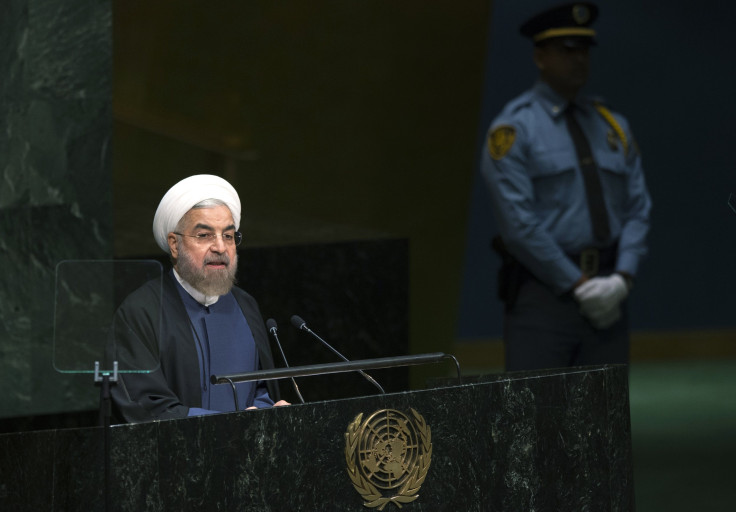Hassan Rouhani UN Speech: Iranian President Blames West For Middle East Extremism During United Nations Assembly

Iranian President Hassan Rouhani blamed the West for the Islamic extremism sweeping the Middle East and North Africa in his address to the United Nations General Assembly Thursday. Rouhani didn't single out any countries by name during his 20-minute speech in New York but rather criticized “certain states” and “intelligence agencies” for antagonizing and arming militants across the Middle East.
“Certain states have helped create [extremism] and are now failing to withstand it,” Rouhani said. “Today’s anti-Westernism is the offspring of yesterday’s colonialism. Today’s anti-Westernism is a reaction to yesterday’s racism.”
Rouhani said he was optimistic about international negotiations with the U.N. Security Council over Iran’s nuclear program, which he insists is peaceful, but cautioned that Iran “can’t place trust” in countries that impose sanctions, which the U.S. has done. The deadline to reach a nuclear agreement is Nov. 24, but progress has been slow.
Rouhani doubled down on his position from earlier this week that the Obama administration's airstrikes within Syrian territory were illegal and alluded to the U.S.' role in providing weapons to Islamic militants. “Certain intelligence agencies have put the blades in the hands of madmen, who now spare no one,” he said, referring to the arming of rebels and militia in Syria. He said "military aggression" in Iraq and Afghanistan and “improper interference” in Syria constituted an “erroneous strategic approach in the Middle East.”
"I am coming from a region of the world whose many parts are currently burning in the fire of extremism and radicalism," he said. "To the east and west of my country, extremists threaten our neighbors, resort to violence, and shed blood. They, of course, do not speak a single language, they are not of a single skin color, and not of a single nationality; they have come to the Middle East from around the world. They do, however, have a single ideology: violence and extremism."
President Barack Obama has so far refused to officially work with Iran in combating Islamic State militants in Syria and Iraq. But Iran has sent its Iranian Revolutionary Guard to Iraq to help take out the militants also known as ISIS, and the U.S. began airstrikes in Iraq in August.
It was a historic week for Rouhani, who sat down with British Prime Minister David Cameron Wednesday in the first meeting between Iranian and British leaders since the Iranian Revolution in 1979.
Rouhani took to Twitter to expand on his statements at the General Assembly.
I believe if countries claiming leadership of the coalition, do so to continue their hegemony in the region, they’d make a strategic mistake - Hassan Rouhani (@HassanRouhani) September 25, 2014
Rouhani’s full speech:
© Copyright IBTimes 2025. All rights reserved.






















